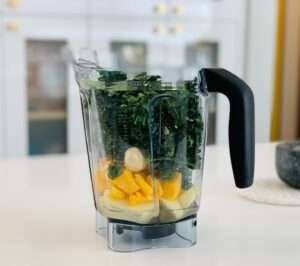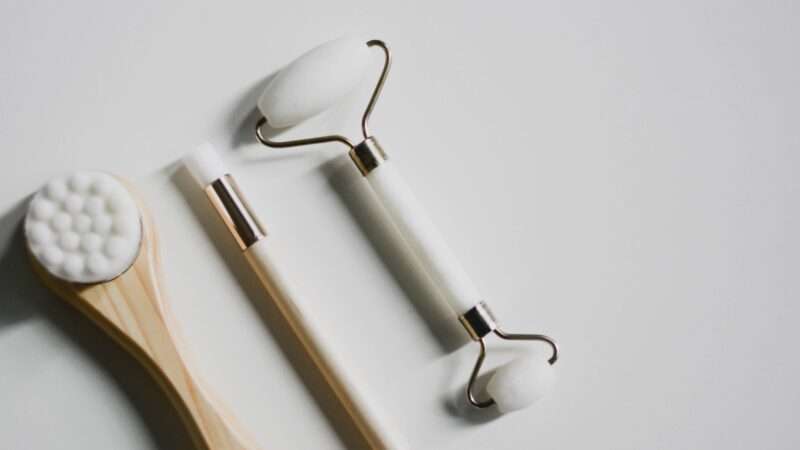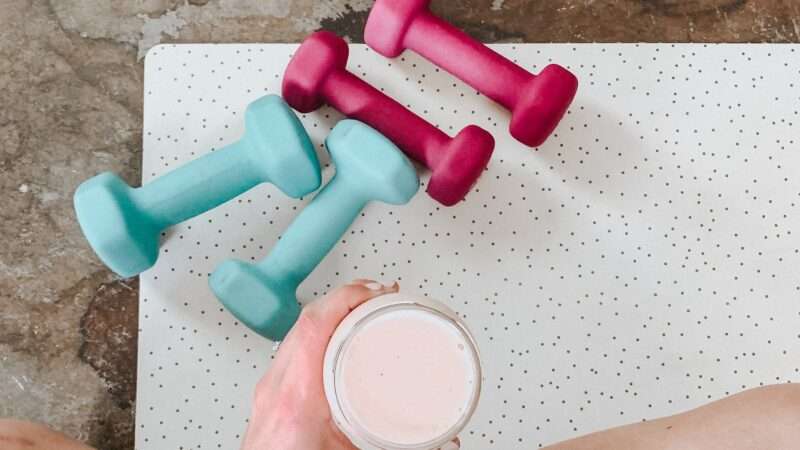Are meal replacement shakes healthy?

Meal replacement shakes are an easy, convenient way to cut calories and lose weight. But there's a lot of confusion over whether they're healthy.
There's no consensus about the healthiness of meal replacement shakes. They're often marketed as weight-loss tools but can't replace a healthy, balanced diet.
Even if you haven't tried one yet, you should be aware by now that there are shakes in the market that are packed with all the nutrients found in the meals you consume regularly.
These shakes may save time, but the question is, are they healthy? This article will examine a meal replacement shake, its pros and cons, and how they work.
What is a meal replacement shake?
A meal replacement shake are designed to substitute for several meals. Whether it be breakfast, lunch, or dinner, they mostly include more nutrients than a meal but also contain fewer calories.
They are a popular way of weight loss and include a lot of protein, making you feel filled for longer periods. Although meal replacement shakes often don't have fruits, vegetables, and grains, they usually contain high levels of the nutrients found in such foods.
According to the Dietary Guidelines for Americans, 2020-2025, the daily average calorie intake for an adult man is between 2,000 and 3,000 calories each day, while for an adult woman is between 1,600 and 2,400
Experts advise that your food should contain:
- Fresh fruits
- Vegetables
- Fats and oil
- Whole grains
- Dairy products, like milk, cheese, and yogurt
- Protein, like meat, eggs, beans, and seafood
According to Ludlam-Raine, meal replacement shakes are designed to “supply carbs for energy, protein for repair, healthy fats, and dietary fiber, as well as vitamins and minerals.”
Some shakes are what we refer to as “nutritionally complete,” which means that a particular number of shakes per day is all you need to consume to meet recommended nutrient intakes.
Others require supplementation; for instance, if someone substitutes two shakes for breakfast and lunch, they would have three snacks and one healthy evening meal. She continues by explaining that the 3,2,1 plan is another name for this.
Pros of Meal Replacement Shakes
So, are shakes used to substitute meals healthy? Meal substitute shakes have several health advantages.
-
Rich in Nutrients
A meal replacement shake is a way to ensure you have a healthy option, especially if you won't have time to stop and eat. It could be easy to visit a fast-food restaurant, where many options are unhealthy. Also, a burger is likely to cost more than a meal replacement shake.
-
Weight Loss
A study published in Current Nutrition and Food Science found that replacing one or two meals daily with a meal replacement shake can speed up weight loss. They can also be helpful for some people for weight loss within a short period.
To lose weight more quickly, partial or complete dietary substitutions are often used, which can be helpful in some situations, such as while attempting to put diabetes into remission. Nevertheless, this should be done under the supervision of a dietician.
-
Fewer Calories
Instead of calorie counting for three balanced meals, which may be time-consuming for some, alternate meal drinks can help reduce calorie consumption. By making it simpler to know exactly how many calories are in each meal.
-
Added Fiber
Meal replacement shakes frequently contain a lot of fiber in addition to the protein that makes you feel full. You won't feel bloated or have constipation because this promotes good digestion.
Additionally, having your meal in the shape of a shake eliminates the sensory experience of eating, which will assist you in avoiding overeating.
Cons of Meal Replacement Shakes
Meal replacement shakes provide several advantages, but there are also some drawbacks.
-
Artificial ingredients
Because the powder blends are prepared, meal replacement shakes usually contain many artificial components. The artificial components enhance nutrition and help in preserving the product. Many shakes also have sugar added to them to improve the flavor. Make sure you thoroughly read all labels.
-
Low calories
Low calories might be advantageous in certain circumstances while being detrimental in others. When you want to lose weight, you reduce your calorie intake. But going too low on calories might be harmful.
Typical alternate meal drink calories range from 150 to 200, far less than what you consume during a meal. Aim to make up any lost calories with additional meals and snacks.
-
Evaluating the Standard
While some products claim to replace meals, they fall short of expectations. Ensure your shake has 3 grams (g) or more fiber. The amount of protein in the shake should be more than or equal to the number of carbohydrates.
-
Lack of Healthy Eating
According to research published in Hormone and Metabolic Research, a liquid meal is less filling than a solid meal. It results in lower levels of the hunger hormone (ghrelin) in the blood after study participants have a solid meal instead of a liquid meal.
In addition to regular mealtimes, they don't instruct people in proper eating or assist them in forming healthy habits. Shakes used to substitute meals are sometimes expensive and can not be as satisfying as meals.
The evening meal and snacks must be well prepared to accomplish the calorie deficit necessary for weight reduction because meal substitute drinks aren't as filling as digesting a meal.
This might make meal substitute drinks' time-saving benefit ineffective.
-
Allergies
Check the labels before buying if you have lactose intolerance or a dairy allergy. Remember that whey protein originates from cow's milk, so you might want to look for a plant-based protein blend.
ARE MEAL REPLACEMENT SHAKES HEALTHY?
Meal replacement shakes include a variety of benefits and drawbacks, making it difficult to definitively say “yes” or “no” to the question of whether they are healthy. It often depends on the purpose for which they are being used.
Meal replacement shakes may be a helpful, although temporary, option for someone trying to lose weight and wants the stress of calorie tracking and food preparation removed.
On the other hand, meal substitute drinks don't help educate people about nutrition fundamentals. As Ludlam-Raine explains; rather, eating a balanced diet that includes protein, carbs, and fats and learning to prepare straightforward, nutrient-dense meals can provide a good foundation for a healthy diet.
Additionally, the case for weight reduction may be hampered by the fact that meal replacement shakes are less full than solid meals since it may be claimed that extreme willpower is required to refrain from nibbling on extra food. Eating extra food may tilt the calorie scale, increasing the number of calories consumed and making it more difficult to lose weight.
How Do Meal Replacement Shakes Work
Meal replacement shakes are packed with protein, which keeps you full without adding many extra calories to your diet. Meal replacement shakes promote weight reduction without sacrificing muscular mass.
You may buy single-serving bottles of several prepackaged meal replacement shakes. Others are available as a powder that you blend with milk or water.
How You Should Make Your Shake

One of the best things to do is to prepare these shakes yourself. By doing so, you will know if your shake is high in fiber, protein, fats, vitamins, and minerals.
One of the major problems with commercial shakes is that they are always available in supermarkets and juice bars. Still, they contain a high sugar level, low-quality protein sources, and artificial ingredients.
Therefore, you risk being deficient if you don't balance your food. So to get a balanced meal, here are a few things to do
Get a blender and prepare your meal replacement shake; it won't take long, and you'll be at peace knowing you carefully picked the ingredients. Additionally, you can chop and modify the ingredients, resulting in various intriguing combinations until you find the one you adore.
As you prepare your shake, keep in mind to include a protein source (soy, whey) along with water or milk, veggies like spinach and kale, fruits like bananas, chopped apples, or dates.
Include nuts like almonds, cashews, or peanuts for the additional fat content, and add a few other ingredients like yogurt or oats to create a well-rounded, nutrient-dense shake.
These are only recommendations. As long as it's balanced, you may add whatever you think tastes wonderful. Always remember that protein will keep you full throughout the day and is more satiating than fats and carbohydrates.
Shakes sadly lack the antioxidants, vitamins, and minerals found in fruits and vegetables, which are full food sources. Pair shakes with a low-calorie snack rich in these nutrients to compensate for this. It is, therefore, preferable to choose your dietary sources.
You should be aware that substituting your meals constantly is not a long-term solution. You'll eventually need to learn to control quantities while being aware of the nutrients added to your shake and incorporating them into meals.
Always pre-consult your dietician, who can give recommendations based on your circumstances.
Conclusion
Meal replacement shakes may be the perfect tool to help you lose body fat, but they should not be used as a long-term solution. Rather, they should be used for a short time to help you jump-start your diet and slowly work toward a balanced dietary regimen that includes whole foods.
Also, consult your doctor before starting a meal replacement shake program if you have weight or digestion problems.






